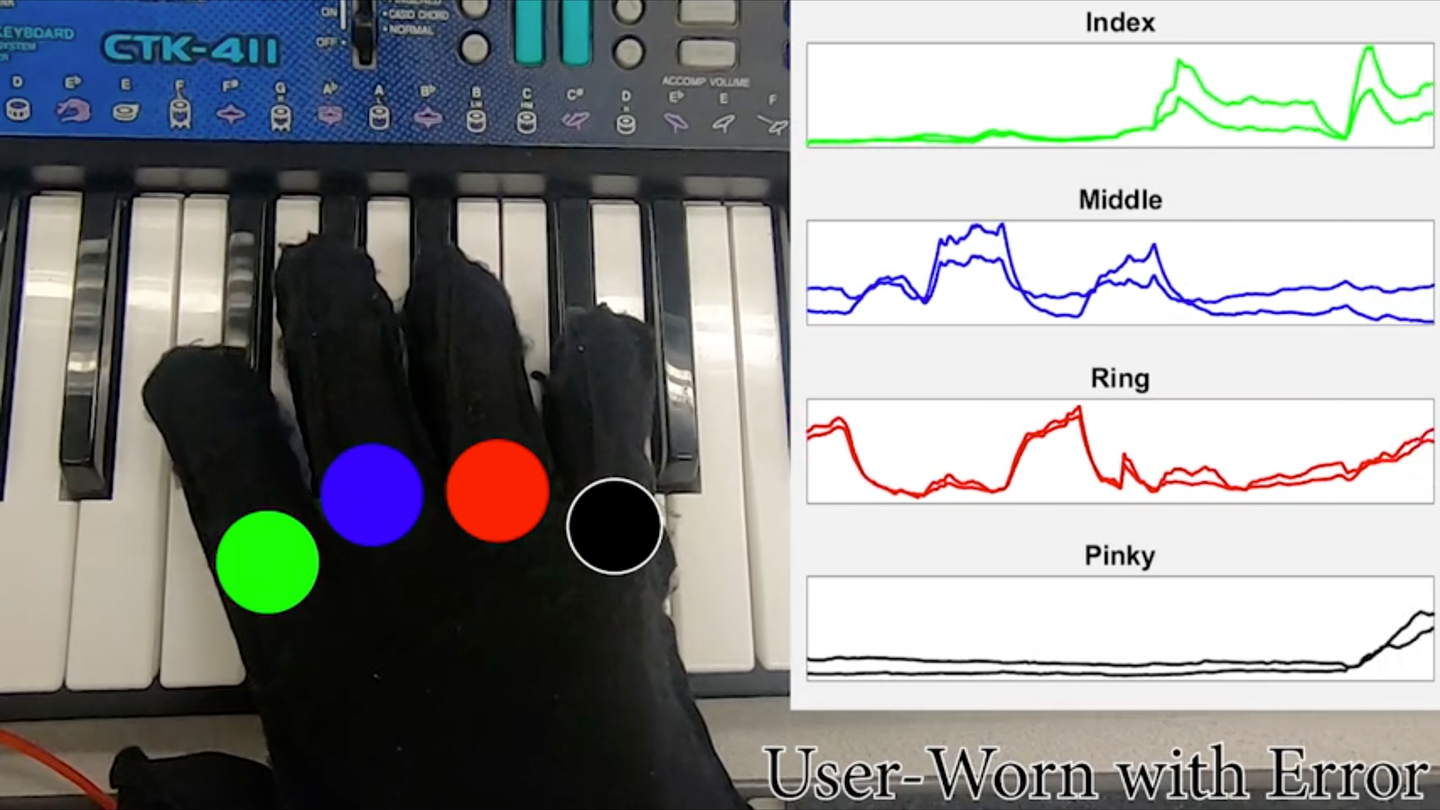
A customizable smart glove powered by artificial intelligence shows promise as an easy-to-use, wearable tutoring aide for musicians recovering from strokes. According to a study published with Frontiers in Robotics and AI, a team at Florida Atlantic University has developed a lightweight “smart hand exoskeleton” prototype using 3D printed materials and machine learning. This new smart glove could soon help patients relearn how to play the piano “by ‘feeling’ the difference between correct and incorrect versions of the same song.”
[Related: A tiny patch can take images of muscles and cells underneath your skin.]
In the aftermath of a debilitating stroke, many patients require extensive therapy regimens to relearn certain motor movements and functionalities affected by neurotraumas. Sometimes, this loss of control unfortunately can extend to the patient’s ability to play instruments. And while therapeutic technology exists for other movement recovery, very few options are available to someone such as a pianist hoping to return to music.
Researchers’ new smart glove aims to remedy this issue via imbuing a 3D printed wearable with soft pneumatic actuators housed in the fingertips The researchers have equipped each fingertip with 16 tactile sensors, aka “taxels,” to monitor the wearer’s keystrokes and hand movements. The team also used machine learning to train the glove in differentiating the “feel” of correct versus incorrect renditions of “Mary Had a Little Lamb.” Putting it all together, a user could play the song themselves while receiving real-time feedback in the form of visual indicators, sound, or even touch-sensitive haptic responses.
[Related: These wearable cyborg arms were modeled after Japanese horror fiction and puppets.]
“The glove is designed to assist and enhance their natural hand movements, allowing them to control the flexion and extension of their fingers,” Erik Engeberg, the paper’s senior author and a professor in FAU’s department of ocean and mechanical engineering, said in a statement on Thursday. “The glove supplies hand guidance, providing support and amplifying dexterity.”
Although only one smart glove currently exists, the research team hopes to eventually design a second one to create a full pair. Such devices could even one day be programmed to help with other forms of object manipulation and movement therapy. First, however, the wearable’s tactile sensing, accuracy, and reliability still need improvements, alongside advancing machine learning to better understand human inputs in real time.
The post This AI-powered glove could help stroke patients play the piano again appeared first on Popular Science.
Articles may contain affiliate links which enable us to share in the revenue of any purchases made.
from | Popular Science https://ift.tt/hyAJHbi




0 Comments